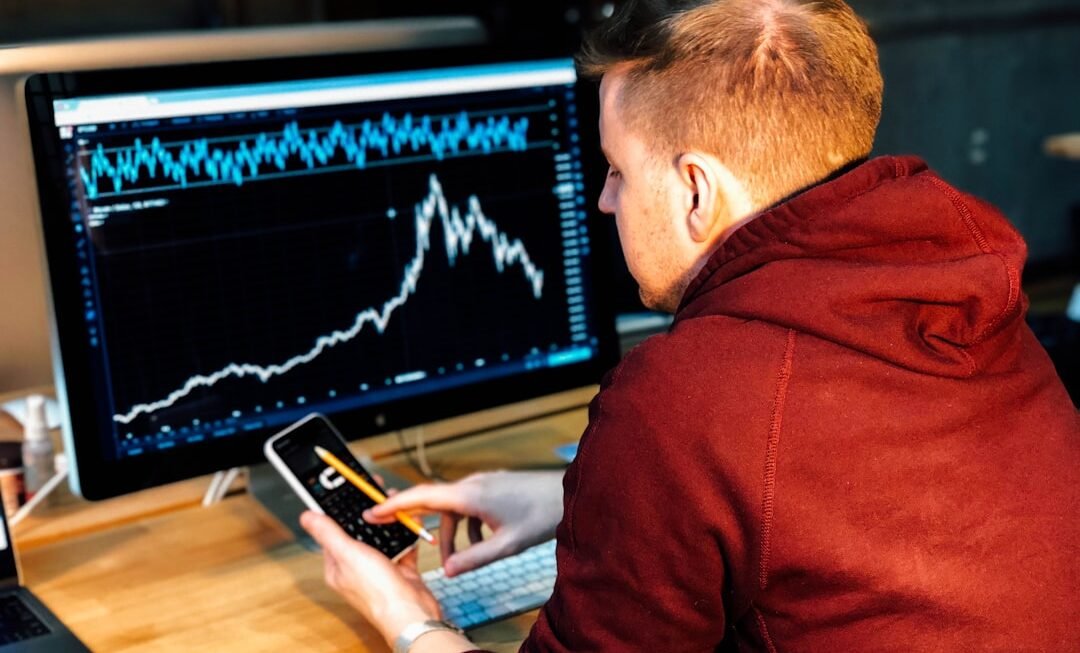The landscape of financial markets has undergone a significant transformation with the advent of artificial intelligence (AI). Day trading, characterized by the rapid buying and selling of financial instruments within a single trading day, has particularly benefited from AI technologies. Traders are increasingly leveraging sophisticated algorithms and machine learning models to analyze vast amounts of data, identify patterns, and execute trades at speeds unattainable by human traders.
This integration of AI into day trading not only enhances decision-making processes but also introduces a new level of complexity and efficiency to the trading environment. AI’s role in day trading extends beyond mere automation; it encompasses predictive analytics, sentiment analysis, and risk management. By utilizing historical data and real-time market information, AI systems can forecast price movements and market trends with remarkable accuracy.
Moreover, these systems can adapt to changing market conditions, learning from past trades to refine their strategies continuously. As a result, traders who harness AI tools can potentially gain a competitive edge in an increasingly crowded marketplace.
Key Takeaways
- AI in day trading involves using advanced algorithms and machine learning to make trading decisions in real-time.
- Pros of using AI in day trading include faster decision-making, ability to analyze large amounts of data, and potential for higher accuracy in predicting market movements.
- Cons of using AI in day trading include the risk of technical glitches, over-reliance on technology, and the potential for market manipulation.
- Best practices for implementing AI in day trading include thorough testing of algorithms, continuous monitoring of AI performance, and incorporating human oversight in trading decisions.
- The future of AI in day trading is expected to involve even more advanced algorithms, integration with other technologies like blockchain, and increased regulatory scrutiny.
- Risks and challenges of AI in day trading include the potential for financial losses, lack of transparency in algorithm decision-making, and the need for constant updates to keep up with market changes.
- Ethical considerations in AI day trading include the potential for unfair advantage for those with access to advanced AI technology, the impact on market stability, and the need for responsible use of AI in trading.
- In conclusion, recommendations for AI in day trading in 2025 include a balanced approach that combines AI capabilities with human judgment, adherence to ethical guidelines, and ongoing regulatory oversight.
Pros of Using AI in Day Trading
One of the most significant advantages of employing AI in day trading is its ability to process and analyze vast datasets at unprecedented speeds. Traditional traders often rely on their intuition and experience, which can be limited by cognitive biases and emotional decision-making. In contrast, AI algorithms can sift through millions of data points, including historical price movements, trading volumes, and even social media sentiment, to identify profitable trading opportunities.
This data-driven approach minimizes the influence of emotions and biases, leading to more rational and informed trading decisions. Additionally, AI systems can execute trades with remarkable precision and speed. In day trading, where every second counts, the ability to place orders instantaneously can make a significant difference in profitability.
Algorithms can be programmed to react to market signals in real-time, ensuring that traders capitalize on fleeting opportunities. For instance, if an AI model detects a sudden spike in trading volume for a particular stock, it can automatically execute buy or sell orders before human traders even have time to react. This speed not only enhances potential returns but also helps mitigate risks associated with market volatility.
Cons of Using AI in Day Trading
Despite the numerous advantages that AI brings to day trading, there are also notable drawbacks that traders must consider. One primary concern is the reliance on historical data for predictive modeling. While AI algorithms can identify patterns based on past performance, they may struggle to adapt to unprecedented market conditions or black swan events—rare occurrences that have a significant impact on financial markets.
For example, during the COVID-19 pandemic, many AI models failed to predict the extreme volatility and rapid shifts in market sentiment, leading to substantial losses for traders who relied solely on these systems. Moreover, the complexity of AI algorithms can create a barrier for many traders. Understanding how these models operate requires a certain level of technical expertise that not all traders possess.
This knowledge gap can lead to over-reliance on AI systems without fully comprehending their limitations or the underlying assumptions driving their predictions. Consequently, traders may find themselves at risk if they do not maintain a balanced approach that combines AI insights with their own market understanding.
Best Practices for Implementing AI in Day Trading
To effectively integrate AI into day trading strategies, traders should adhere to several best practices that enhance both performance and risk management. First and foremost, it is crucial to maintain a diversified portfolio. Relying solely on AI-driven trades can expose traders to significant risks if the algorithms fail to perform as expected.
By diversifying across various asset classes and employing multiple trading strategies, traders can mitigate potential losses and create a more resilient trading approach. Another essential practice is continuous monitoring and evaluation of AI performance. Traders should regularly assess the effectiveness of their AI models by comparing predicted outcomes with actual market performance.
This ongoing evaluation allows for timely adjustments to algorithms and strategies based on real-world results. Additionally, incorporating feedback loops into the AI systems can enhance their learning capabilities, enabling them to adapt more effectively to changing market conditions.
The Future of AI in Day Trading
The future of AI in day trading appears promising as advancements in technology continue to evolve. Machine learning techniques are becoming increasingly sophisticated, allowing for more accurate predictions and better risk assessment models. As computational power increases and access to big data expands, traders will be able to leverage even more complex algorithms that can analyze multifaceted market dynamics.
Furthermore, the integration of natural language processing (NLP) into AI systems is set to revolutionize how traders interpret market sentiment. By analyzing news articles, social media posts, and other textual data sources, AI can gauge public sentiment towards specific stocks or sectors. This capability will enable traders to make more informed decisions based on real-time sentiment analysis rather than relying solely on historical price data.
Risks and Challenges of AI in Day Trading
While the potential benefits of AI in day trading are substantial, several risks and challenges must be addressed. One significant risk is the potential for algorithmic trading strategies to exacerbate market volatility. During periods of high volatility or unexpected market events, automated trading systems may trigger a cascade of sell orders or buy orders based on pre-defined criteria, leading to flash crashes or extreme price swings.
Such occurrences highlight the need for robust risk management protocols that can prevent catastrophic losses during turbulent market conditions. Another challenge lies in the ethical implications of using AI in trading. The increasing reliance on algorithms raises questions about market fairness and transparency.
If a small number of firms possess advanced AI capabilities while others do not, it could lead to an uneven playing field where only those with access to cutting-edge technology can succeed. Additionally, concerns about data privacy and security are paramount as traders utilize vast amounts of personal and financial information to train their models.
Ethical Considerations in AI Day Trading
The ethical considerations surrounding AI in day trading are multifaceted and warrant careful examination. One primary concern is the potential for market manipulation through algorithmic trading strategies. If certain entities deploy high-frequency trading algorithms that exploit minute price discrepancies for profit, it could undermine market integrity and erode investor confidence.
Regulatory bodies must establish guidelines that ensure fair practices while allowing innovation in algorithmic trading. Moreover, transparency in AI decision-making processes is crucial for ethical compliance. Traders should be able to understand how their algorithms arrive at specific decisions rather than treating them as black boxes.
This transparency fosters accountability and allows traders to make informed choices about their strategies. Additionally, ethical considerations extend to data usage; ensuring that data is sourced responsibly and complies with privacy regulations is essential for maintaining trust within the financial ecosystem.
Conclusion and Recommendations for AI in Day Trading in 2025
As we look toward 2025, the integration of AI into day trading will likely become even more pronounced. Traders should embrace this technological evolution while remaining vigilant about its risks and ethical implications. To navigate this landscape successfully, it is recommended that traders invest in education and training to understand both the capabilities and limitations of AI systems fully.
Furthermore, establishing robust risk management frameworks will be essential for mitigating potential losses associated with algorithmic trading strategies. By combining human intuition with advanced AI insights, traders can create a balanced approach that leverages the strengths of both worlds. Ultimately, as technology continues to advance, those who adapt thoughtfully will be best positioned to thrive in the dynamic realm of day trading powered by artificial intelligence.












